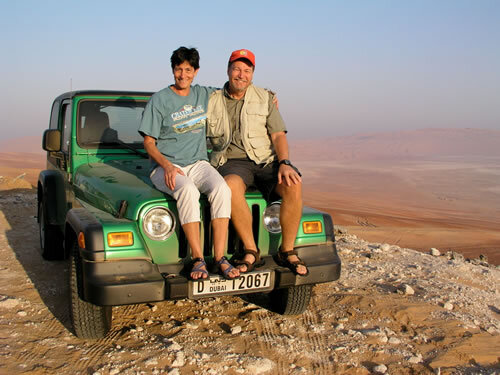Classroom Support
“A Day In The Life”
Best Case Scenario
If you’ve ever taught in a well-resourced school in your home country, you might have an idea what you might expect from an international school classroom.
• Classroom aides
• Small class sizes
• Teaching resources, enough for everybody
• Classroom supplies in abundance
• Specials (art, music, library, PE, counselors)
• Few if any discipline problems
• Academically capable and ambitious students
• Most likely no Special Education students
• Parental support
Sigh. Makes you feel happy just thinking about such a well-ordered, well-stocked, well-run workplace.
Class Size, Aides, and Specials
Small classes (20 is considered large) and an aide in every elementary classroom is typically the default. There may even be a staffer to run the copy machine. What used to be the standard specials like PE, art and music, librarians and counselors are also the norm.
Professional Development (PD)
One element of the teacher package to ask about would be PD support i.e. will the school pay for conference attendance or other training? How many days are granted? A pleasant quirk is that if you work at an IB World School, you might well be sent to Geneva, Switzerland for training.
Teaching Materials
It may strike you as odd, but early in the school year, your administrator will ask what teaching materials you’ll need for next year. Frequently, materials are ordered from the US and take a full year to arrive. Besides hiring, ISS sometimes sets up and runs new schools and arranges school supply, and so your orders might go through them.
Alternately, some schools keep a supply room jam-packed with every teaching supply a teacher might ever need. English-language books can be very expensive locally and hard to come by. This has eased thanks to widespread availability of Internet downloads, thankfully.
Facilities
Olympic sized pool in Chiang Mai
Because the international school market is so competitive and because tuition is typically so high, the physical plant tends to be well-maintained, beautiful, and in a green space outside a sometimes chaotic central city.
Frequently there is an elementary and a separate secondary campus, if the school is big enough. The maintenance crew is numerous and keeps things tidy.
Maintenance Staff and Guards
Janitors in Thailand performed the full range of duties.
In Thailand the staff came in handy when a cobra got into the boarding school laundry room; they killed it and cooked it for lunch. In Austria we called the maintenance workers “the green guys” because of their work coveralls. Guards and gate attendants and putz-frau (cleaning ladies) filled out the staff. In Russia the staff would start your car to warm it up before you left for school and used a shedload of tools to break up ice in the parking lot.
Technology
Again, because of the competitiveness of the international school market, up-to-date technology is frequently a selling point and competitive edge. It is not unusual for each classroom to have a smart board and for each student to have his or her own tablet and for instruction to be delivered and work turned in electronically.
Extracurricular and After-School Activities
Coaching and ASA (After-School Activities) are decidedly part of your job as a teacher at an international school. These schools are Western islands in a foreign sea and are therefore closer-knit than you might be used to. They serve a huge role as community centers for the school families.
This means you may be chaperoning sports trips to Warsaw or taking the MUN (Model United Nations) group to Dublin. Or you may have to drum up a robotics club as your twice a week ASA. Part of the package.
Diversity and Global Outlook
One of the most characteristic features of an international school is right in front of the teacher when s/he calls the roll. Diversity in this context means children from any one of 50+ countries could be in your classroom.
You might hear a regular Babel of languages in the hallways and lunchroom. Or better yet, you might hear them all speak English, which is the point of an international school.
Curriculum Options
“Variety’s the very spice of life,
That gives it all its flavor.
”
True enough, but too much variety may lead to chaos. So how does an international school structure what goes on in the classroom? What teaching materials are used?
When a job posting reads Teacher of IBDP and IBMYP Language A: English, what does that mean? In other words, what curriculum is used in a given school?
Generally, the categories of curriculum are:
IB (International Baccalaureate)
AP (Advanced Placement)
IGCSE (International General Certificate of Secondary Education)
National (Canadian, Australian, Korean, Japanese, French, Indian, Pakistani, etc.)
Parents are paying extraordinary tuition, most over $20,000 in the United Arab Emirates (UAE,) for instance. What parents need and want for their children determines which curricula they choose.
If their child will be returning to their home country for university and expects to build a career in the United Kingdom, for instance, the decision is made. This assumes the city is large enough to support more than one category of school.
International Baccalaureate
But if the parent anticipates the child will be an expat with a global outlook, IB works best. What is IB? It was established in 1968 with headquarters in Geneva, Switzerland. In 2016 IB had 4,538 World Schools (their term) and 161,408 exam DP (Diploma Program) candidates.
That means students must take and pass exams in various subject areas to be granted university credit or receive a boost for university admission. The marks are crucial, just as in AP (Advanced Placement) classes for American schools.
“For schools that have achieved the high standards required for authorization, one of the benefits is to be known as an IB World School and to make use of the IB make use of the IB brand.”
The curriculum consists of four programmes. Note the spelling, as there is a strong British flavor to IB:
DP (Diploma Program) - high school, culminates in IB exams
MYP (Middle Years Program) - not found so often as DP or PYP
PYP (Primary Years Program) - requires much teacher collaboration and student initiative
CP (Career-Related Program) - I haven’t experienced this; uncommon.
IB is built around the Learner Profile, which emphasizes students taking responsibility for their own learning. IB has a well-developed promotional and professional development arm. Some people snarkily refer to IB as a cult.
IB really isn’t “for all.”
A friend returned from overseas and taught at a self-described “IB For All” school in Massachusetts. It didn’t really work that well. The problem was that successful IB students need a high level of general knowledge, good academic skills, and the ability to work independently and collaboratively. Not all students do, unfortunately.
Advanced Placement
This program is built on the same principles as IB, mainly a challenging curriculum and exams which can lead to college credit and even skipping entry-level university courses.
AP credits are almost universally accepted in American universities and increasingly in international colleges. If a school is big enough, as at the American School of Paris, it may offer both. But AP is still nowhere near as common as IB.
Some schools like AIS Vienna offer a “curriculum based on the American system with an international flavor.” Others use the Common Core framework.
International General Certificate of Secondary Education (IGCSE)
This is the British curriculum featuring an exam array from Accounting to Urdu, leading to A-Level exams, which are a requirement for university entrance in the United Kingdom. If a city is big enough, there may be a school featuring the British curriculum and another with the IB or American curriculum.
National Curricula
Again, if a city is big enough, there might be an array of schools featuring curricula from the home country. Vienna, for instance, has a French Lycée, a Svenska Skolan, and a Japanese school.
In addition even if a student attends an IB or American-style school, he or she might also attend a cram school just to be prepared to enter university when the parents return home.
Bottom line? This decision depends on what the parents plan for their child.
Models of Instruction
Inquiry-Based
When you build a house, it’s all about the foundation. In instructional terms this means the school’s curriculum determines the instructional model.
So in an IB World School, for instance, the youngest elementary students PreK-2 will learn through inquiry-based instruction. This model requires extra teacher training (you may be sent for IB training) and for students who have the language skills and background knowledge to manage this style of learning.
Grade-level and subject area teams are the norm, and differentiation in the classroom is made much easier by the generous number of classroom aides.
Traditional
If the curriculum is not IB, then other more traditional instructional models govern the classroom: traditional textbook-based/ outcome-based backward by design formats/ or thematic units that a teacher favors.
Most frequently the school will be divided into elementary/middle/high school divisions, and often a Nursery/PreK section. The structure will mirror that of a British or American school.
Special Education Implications
International schools are seldom able to accommodate children with severe disabilities. However, you might expect a handful of mildly-disabled students: LD/ ADHD/ on the spectrum/ sometimes blind or deaf, sometimes even with a full-time aide.
What you will not see is a classroom with numerous severe BD students and a high percentage of non-English speaking students. International schools have no legal obligation to serve these students and it is too costly to provide services.
The US Department of State delicately notes that “children with moderate to severe difficulties still encounter major challenges.” This means diplomats with children in these categories won’t be sent overseas. DoDEA schools will be more able to provide some services, but not to the degree available back home.
English-language Learners
Younger ELL students become fluent more easily, generally speaking.
Attaining fluency in English and preparing for admission to good universities is the reason international schools exist. Some schools will not admit older students with weak or non-existent English. Refer back to the discussion of IB and AP testing to understand why.
Instructional models for ELL (English-language learners) have some quirks. Below are the most usual formats for non-native speakers:
• Inclusion. Just drop the child into an English-language classroom environment. The younger the child, the better the outcome.
• Self-contained classrooms focusing on English-language instruction. This model is intended to end when the child has reached a benchmark.
• Pullout for intensive English language instruction with core classes. The child is mainstreamed into electives and perhaps math.
• Mainstreaming, perhaps with an aide or other support as needed.
International School Teaching Staff
“Who’s on first?”
Overseas Vs. Local Hires
Let’s start with the two main groups of international school teachers. First are overseas hires, meaning foreign teachers. Overseas teachers are hired through recruiting fairs or by online interviews.
Overseas hires are in a class apart from the next group, financially better off by a long way, with benefits the other class of teacher can only dream about.
Local hires provide the backbone of the school, at less financial cost.
Then there are local hires. These teachers already live in-country for various reasons. They may be local citizens or a Westerner married to a local.
Typically they teach the national curriculum or the local language. Their salary schedule is an emaciated version of the expat teacher’s.
For benefits, they might receive health care and perhaps contribution to a retirement plan, but no housing, tuition for their children, no flight home, no conference travel. Nothing extra. Local hires are financial second-class citizens.
Why?
Because a successful international school requires a certain proportion of native English speakers; parents demand it. And few Westerners are going to leave home, travel to a foreign country on their own dime and work for shockingly low wages and no benefits. Period.
The school might be able to hire random poorly qualified Western teachers who just happen to be in the country, but that won’t work out over time, not with the tuition parents pay. So the school is stuck, and it’s the local hires who bear the brunt while the expats live high on the hog.
Types of International School Teachers
Tourist Teacher
In it for adventure and jolt of adrenaline provided by change. In Year One they arrive/ get settled/ travel a lot/ do a capable job in the classroom. But they are already making plans for the next move and by winter of Year Two, they’re been hired by the next school and will be gone by the start of Year Three.
Most-Likely-To-Break-Contract Teacher (Heidi)
Doing a “Heidi” means breaking contract.
Why Heidi? Because in one school year in Moscow, two teachers coincidentally named Heidi broke contract and left before Christmas. One’s boyfriend was very ill back home and the other got dropped into a band program with no musical instruments; they had not arrived yet. So this is my shorthand for breaking contract.
This group either fell into an international school career (Saudi? Why not?) or they are running away from some personal or financial mess or they are just overwhelmed.
Depending on the nature of their motivations, personality and character, potential Heidis can either become perpetual complainers and crack under the pressure. Or they may feel liberated and settle into this new life having left their problem behind and found a congenial lifestyle.
Career Lifer
They have made international schools their permanent career and worked in many schools and countries. They tend to be steady, pragmatic, and tolerant.
They’ve been everywhere even though they are still connected to their home country and may plan to retire there. Their children are TCK (Third Culture Kids) and equally worldly-wise.
Second-Career/ Retired Teachers
Not quite ready to retire yet.
They seek one last adventure before settling down to spoil their grandkids. They’ve had long and typically successful careers behind them and have mellowed enough to be a steadying influence on the faculty. In baseball these guys are called good in the clubhouse.
Local Lifer
Occasionally a foreigner finds a city or country that just feels like home, and they stay. They may marry a local and raise their children in Vienna or Chiang Mai, learn the language, settle, and let ties to their home country wither. Local lifers are worth hanging around with for their depth of local knowledge.
Trailing Spouse
When a husband/wife is posted overseas, the spouse, possibly unwillingly, ends up getting a teaching or substitute job. Most often these postings are for just a few years, so the trailing spouse may be adaptable enough to be successful or just the opposite. It’s a difficult high wire act. More later.
International School Administrators
“Uneasy lies the head that wears the crown.
”
The administrative structure is pretty much in the same mold as a government-sponsored school anywhere. The main difference is that the school typically stands alone, so instead of a district with a superintendent, international schools have a head of school.
Head of School
If you take a look at the career paths of a typical crop of new administrative overseas hires, you will note a common theme – they generally have considerable international school experience.
When you list their responsibilities, it is easy to see why. They need to perform all these duties, but in a foreign country:
1. Strategic planning – growing the school.
2. Fiduciary management – keeping the school on sound financial footing.
3. Dealing with the Board of Trustees, Embassy, and local government.
4. Handling parents diplomatically.
5. Attending many/most school and community events.
6. Recruiting talented staff.
7. Managing curriculum and accreditation.
8. Preparing emergency plans and campus security.
Administrative Staff
If the school is big enough, the head of school will have both local and overseas staff. If the school is tiny, guess what? The head of school does it all and may even teach a class or two. Bigger schools may have separate departments like:
• Finance department/ business manager
• Admissions director
• Curriculum and Instruction supervisor
• Facilities manager and maintenance
• IT (Instructional Technology) department
Local Staff
The main office could not operate without the highly capable bilingual local staff. They always seem to be over-qualified, but the school would crash in a day without their local knowledge.
These staffers seem to move easily in both the expat and local environments, like salmon, which swim in both fresh and saltwater. Be nice to these people. They will be there long after you have moved on and will prove immensely helpful.
Principals
A large enough school may have an elementary, middle school, and high school division, each with its own principal and separate staff. These principals deal directly with students, instruction, teacher evaluation and day-to-day operations.
They suffer less bureaucracy and Special Education paperwork and fear of litigation. But there is still plenty to do and plenty of problems walking in the door.
Peter Principle - Impact on the Classroom
As with life in general, administrative talent is not evenly distributed. The Peter Principle notes that employees tend to get promoted until they reach their level of incompetence.
This rule holds true for international school leadership, of course. There are some miserable principals and heads of school, even though most are experienced and capable.
But a feature peculiar to international schools is their autonomy, which in practical terms means administrators have a much freer hand than they would in a school district.
A bad administrator can turn the school sour within a few months and short-term, nobody can stop him/her. International schools are especially vulnerable to this rapid-turnover collapse.
So when you read school reviews, keep in mind the review date – a bad administrator can ruin a school pretty quickly. Confirm how long the administration has been in place and whether changes loom. Then decide.
So there you have a roundup of the factors which determine what goes on in your classroom every day. Next let’s move on to your customers, meaning the students and their parents.


























